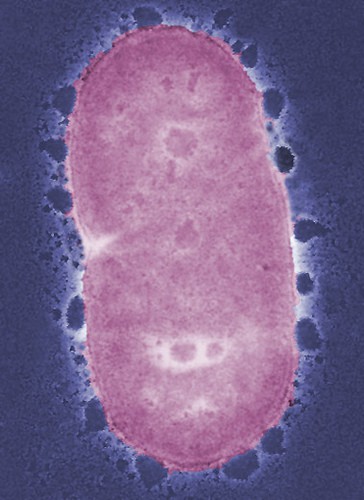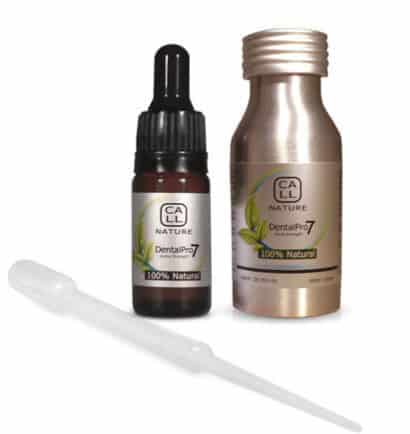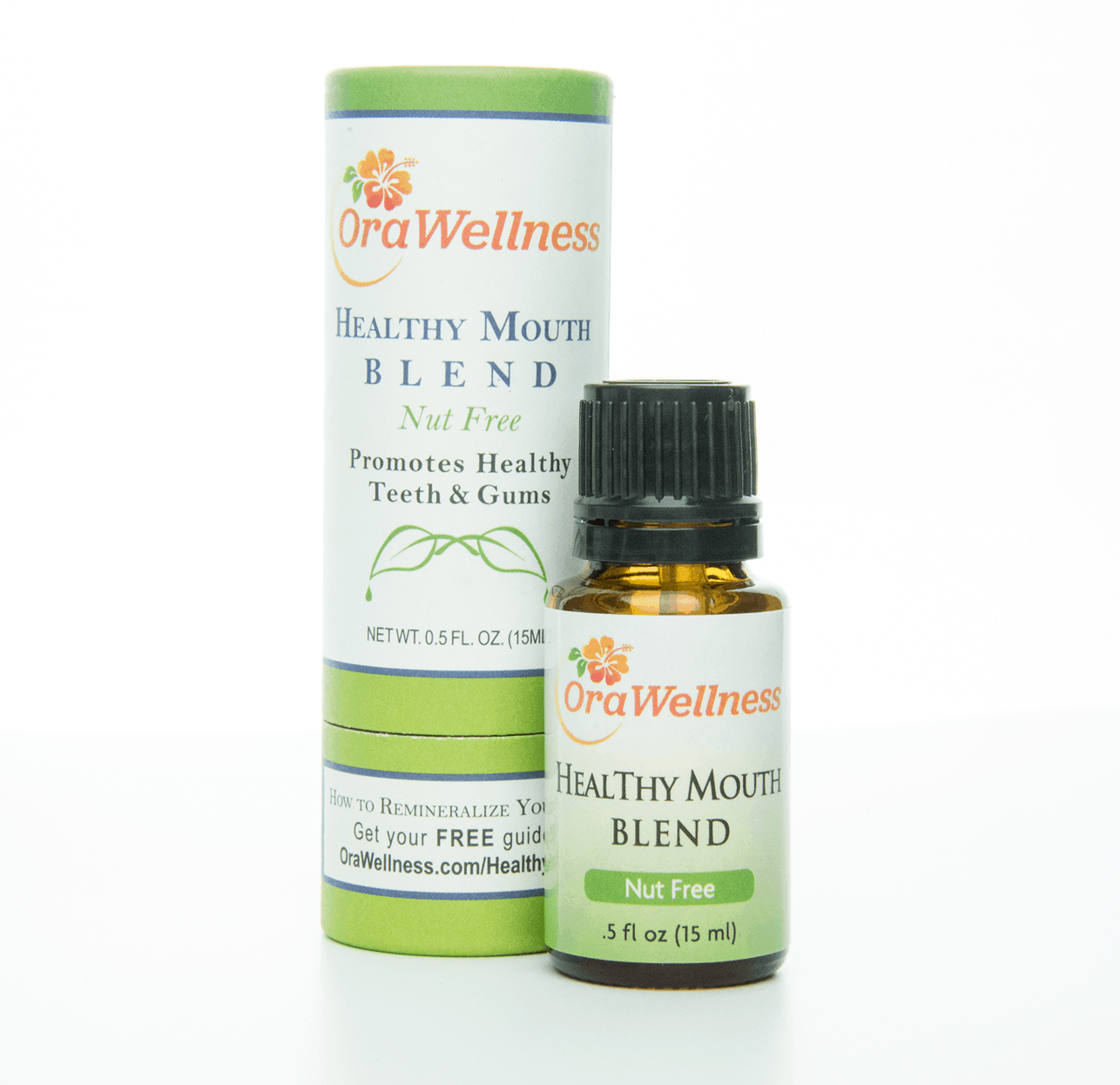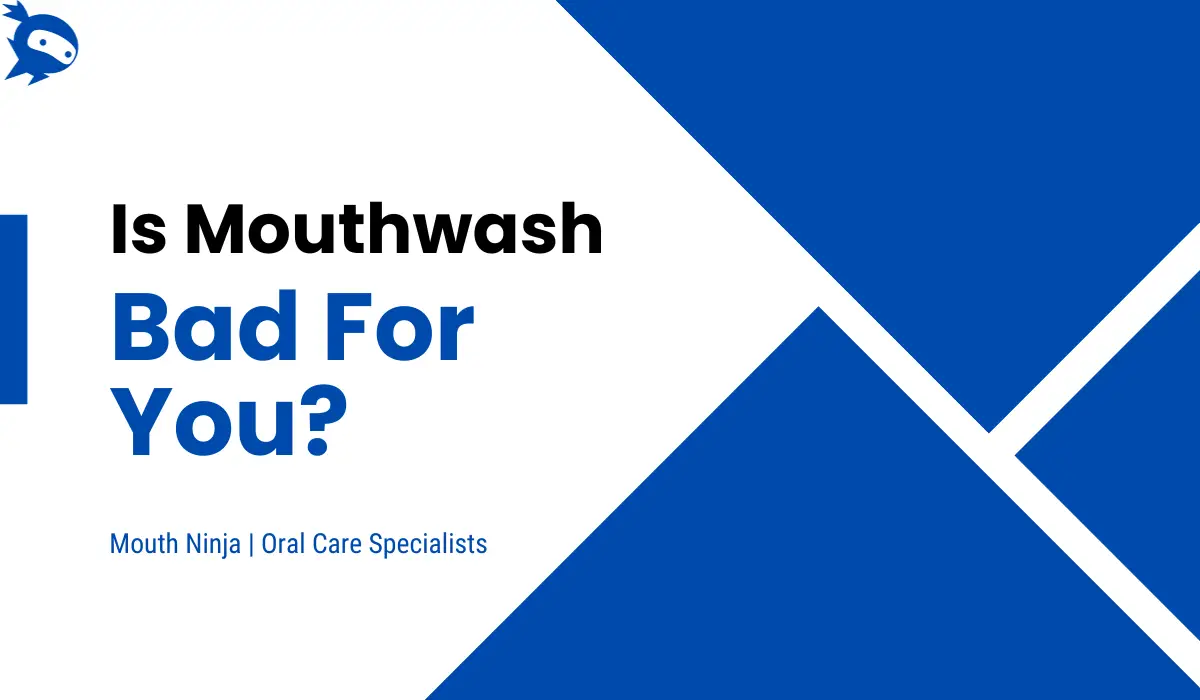Mouthwash is a common oral hygiene product that many people use to freshen their breath and kill bacteria in their mouth.
However, there has been some debate about whether mouthwash is actually bad for you.
While there are potential risks associated with using mouthwash, it is not necessarily bad for you.
One concern with mouthwash is that it may kill both good and bad bacteria in your mouth, disrupting the natural balance of your oral microbiome.
Some studies have shown that certain types of mouthwash, particularly those that contain alcohol, can reduce the amount of good bacteria in your mouth.
However, other studies have found that the benefits of using mouthwash, such as reducing plaque and gingivitis, outweigh the potential risks of disrupting the oral microbiome.
Another potential risk associated with mouthwash is that it may contain harmful chemicals, such as chlorhexidine, which can have negative effects on your health.
While these chemicals are generally safe to use in small amounts, excessive use of mouthwash can lead to side effects such as staining of the teeth, dry mouth, and altered taste perception.
As with any oral hygiene product, it is important to use mouthwash in moderation and follow the instructions on the label to avoid any potential risks.
Understanding Mouthwash
Mouthwash is a liquid solution that is used to rinse the mouth and freshen breath.
It is typically used after brushing and flossing, and can be used as a supplement to regular oral hygiene practices.
There are different types of mouthwash available, including therapeutic and cosmetic mouthwash.
Therapeutic mouthwash is designed to help improve oral health by killing bacteria that can cause bad breath, tooth decay, and gum disease.
It may contain active ingredients such as fluoride, chlorhexidine, or hydrogen peroxide that can help reduce plaque and gingivitis.
Cosmetic mouthwash, on the other hand, is designed to freshen breath and improve the taste in the mouth.
It does not contain any active ingredients that can help improve oral health, but it can be a useful supplement to regular oral hygiene practices.
While mouthwash can be a useful addition to a daily oral hygiene routine, it is important to use it correctly.
Overuse of mouthwash can lead to side effects such as tooth staining, dry mouth, and irritation of the mouth and throat.
Additionally, some types of mouthwash may contain alcohol, which can be harmful if ingested in large quantities.
It is important to choose a mouthwash that is appropriate for your needs and to use it as directed.
If you have any concerns about using mouthwash, it is best to consult with a dentist or other oral health professional.
The Role of Mouthwash in Oral Hygiene
Mouthwash is a liquid solution that is used to rinse the mouth and throat. It is a popular oral hygiene product that is used to freshen breath, kill bacteria, and prevent gum disease and tooth decay.
The use of mouthwash is a common practice in many households, but is it really necessary for good oral hygiene?
The role of mouthwash in oral hygiene is to supplement the daily brushing and flossing routine.
While brushing and flossing remove food particles and plaque from the teeth and gums, mouthwash can reach areas that are difficult to clean with a toothbrush or floss.
Mouthwash can also help to kill bacteria that cause bad breath and gum disease.
However, not all mouthwashes are created equal. Some mouthwashes contain alcohol, which can cause dry mouth and irritation.
Alcohol-free mouthwashes are a better option for individuals with sensitive teeth or gums.
Additionally, some mouthwashes contain harsh chemicals that can cause staining or damage to the teeth. It is important to read the label and choose a mouthwash that is safe and effective.
Overall, the role of mouthwash in oral hygiene is to supplement the daily brushing and flossing routine.
It can help to kill bacteria, freshen breath, and prevent gum disease and tooth decay.
However, it is important to choose a mouthwash that is safe and effective for individual needs.
Potential Benefits of Mouthwash
Mouthwash can be a useful addition to a good oral hygiene routine. It can help fight bad breath, prevent plaque build-up, and kill bacteria.
However, it’s important to note that not all mouthwashes are created equal, and some may have potential drawbacks.
Fights Bad Breath
One of the most common reasons people use mouthwash is to fight bad breath. Mouthwash can help freshen breath by killing odor-causing bacteria in the mouth.
It can also help mask bad breath temporarily.
Prevents Plaque Build-Up
Plaque is a sticky film of bacteria that forms on teeth and can lead to tooth decay and gum disease if not removed.
Some mouthwashes contain ingredients that can help prevent plaque build-up, such as fluoride and cetylpyridinium chloride (CPC).
Fluoride can help strengthen tooth enamel and prevent cavities, while CPC can help kill bacteria that cause plaque.
Can Kill Bacteria
Mouthwash can also help kill bacteria in the mouth.
Some mouthwashes contain antibacterial ingredients such as chlorhexidine, which can help reduce the number of harmful bacteria in the mouth.
However, it’s important to note that some types of mouthwash can also kill beneficial bacteria in the mouth, which can have negative effects on oral health.

Overall, while mouthwash can have potential benefits for oral health, it’s important to choose a mouthwash that is right for you and to use it as directed.
It’s also important to maintain good oral hygiene habits, such as brushing and flossing regularly, to ensure optimal oral health.
Potential Risks of Mouthwash
Mouthwash is a common oral hygiene product that many people use to freshen their breath and prevent dental problems.
However, there are potential risks associated with using mouthwash that people should be aware of.
Can Disrupt Oral Microbiome
One of the potential risks of using mouthwash is that it can disrupt the natural balance of bacteria in the mouth.
Mouthwash contains antimicrobial agents that can kill both harmful and beneficial bacteria.
This can lead to an overgrowth of harmful bacteria and a decrease in the number of beneficial bacteria, which can disrupt the oral microbiome.
Possible Links to Oral Cancer
There is some evidence to suggest that long-term use of mouthwash may be linked to an increased risk of oral cancer.
A study published in the Australian Dental Journal found that people who used mouthwash more than three times a day had a higher risk of developing oral cancer than those who used it less frequently.
However, more research is needed to confirm this link.
Can Cause Dry Mouth
Another potential risk of using mouthwash is that it can cause dry mouth. Mouthwash contains alcohol, which can dry out the mouth and reduce saliva production.
This can lead to a range of oral health problems, including bad breath, tooth decay, and gum disease.
Overall, while mouthwash can be an effective tool for maintaining good oral hygiene, it is important to be aware of the potential risks associated with its use.
People should talk to their dentist about whether mouthwash is right for them and how often they should use it.
How to Use Mouthwash Safely
Mouthwash is a liquid product used to rinse your teeth, gums, and mouth to keep your breath fresh and your mouth clean.
However, improper use of mouthwash can lead to potential risks. Here are some tips for using mouthwash safely.
Avoid Overuse
Using mouthwash too frequently can lead to negative side effects. Overuse can cause dry mouth, which can lead to tooth decay and bad breath.
It can also cause an imbalance of bacteria in the mouth, leading to infections and other problems.
It is recommended to use mouthwash as directed on the label or by a dental professional.
Choose Alcohol-Free Options
Mouthwash containing alcohol can cause dry mouth, which can lead to other oral health issues.
Alcohol-free mouthwash is a safer option for those who are concerned about the risks of using alcohol-based mouthwash.
Alcohol-free mouthwash is also a good option for those who have sensitive teeth or gums.
Consider Natural Alternatives
For those who are looking for a more natural and safe alternative to traditional mouthwash, there are several options available.
Some natural alternatives include saltwater rinse, coconut oil pulling, and herbal mouthwash. These options are safe and effective for maintaining oral health.
In conclusion, using mouthwash can be a helpful addition to your oral hygiene routine, but it is important to use it safely.
Avoid overuse, choose alcohol-free options, and consider natural alternatives to keep your mouth healthy and fresh.
Consulting a Dental Professional
If you are still unsure whether or not to use mouthwash, it’s best to consult with your dental professional.
They can provide you with personalized advice based on your oral health needs and history.
During your dental appointment, you can ask your dentist or hygienist about the benefits and risks of using mouthwash.
They can also recommend a specific type of mouthwash that is best suited for your oral health needs.
Additionally, if you experience any adverse effects from using mouthwash, such as irritation or sensitivity, it’s important to schedule an appointment with your dental professional as soon as possible.
They can evaluate your symptoms and recommend alternative oral hygiene products or treatments.
Overall, consulting with a dental professional is the best way to ensure that you are using mouthwash safely and effectively as part of your oral hygiene routine.
Should I Stop Using Alcohol-Based Mouthwashes?
The simple answer is YES
It causes the following:
- burning mouth,
- drying of the oral mucus,
- softening effects on composite filling materials
- mucosal pain.
Some studies have also linked high alcohol mouthwashes to cancer, however the evidence is not 100% and needs more looking into but you get the point.
Mouthwash Alternatives
The better alternatives to use are mouthwashes that contain powerful naturally occurring essential oils.
There are 2 that we highly recommend:
Alternative #1 – Dental Pro 7

The first one is Dental Pro 7 because all the ingredients in it have been studied extensively for their antibacterial, antiseptic and anti-inflammatory properties.
It helps to cure all sorts of gum problems ranging from:
- Bleeding gums
- Swollen or receding gums
- Bad breath
- Mouth ulcers
- red gums
It comes in a mild mint flavor which gives that fresh breath and is very simple to use and can be applied in under 3 minutes.
Read the full review and see if it can help you out: Dental Pro 7 – Scientifically proven
2nd Alternative – Healthy Mouth Blend
The second product we recommend is The Healthy mouth blend by a company called Orawellness.
It is quite similar to the dental pro 7 in that it uses essential plant oils as its main ingredient.
You can read the full review and see why we rank it so highly on our list.

It does say that it is used primarily for gum disease but it can also double up as a powerful mouthwash.
Feel free to read the full article: Healthy Mouth Blend review
I am currently using an orawellness product called the Shine remineralizing powder and seeing good results so far.
I will be posting my full review of that in a couple of weeks so stay tuned. Trust me when I say, you won’t be disappointed if you do decide to try out the mouth blend.
Final Thoughts
Mouthwash is a good addition to any oral health routine but you need to know which type to get.
Alcohol-based mouthwashes are good in certain circumstances such as after an intensive dental operation where you want to minimize any bacterial activity.
But it also causes bacterial populations to increase because it dries the mouth and reduces saliva levels dramatically.
You want to use alcohol-free mouth rinses because they will not cause you too much discomfort and will still give good results.
Our personal recommendation is that you go for an oil-based mouth rinse because they are just as good if not better than traditional mouthwashes and will not cause any bad side effects such as burning of the mouth and dry mouth.
That’s all we have for today and hopefully, this has cleared up a lot of things for you guys.
If you still have any lingering questions please fell free to comment below and we can discuss it.

